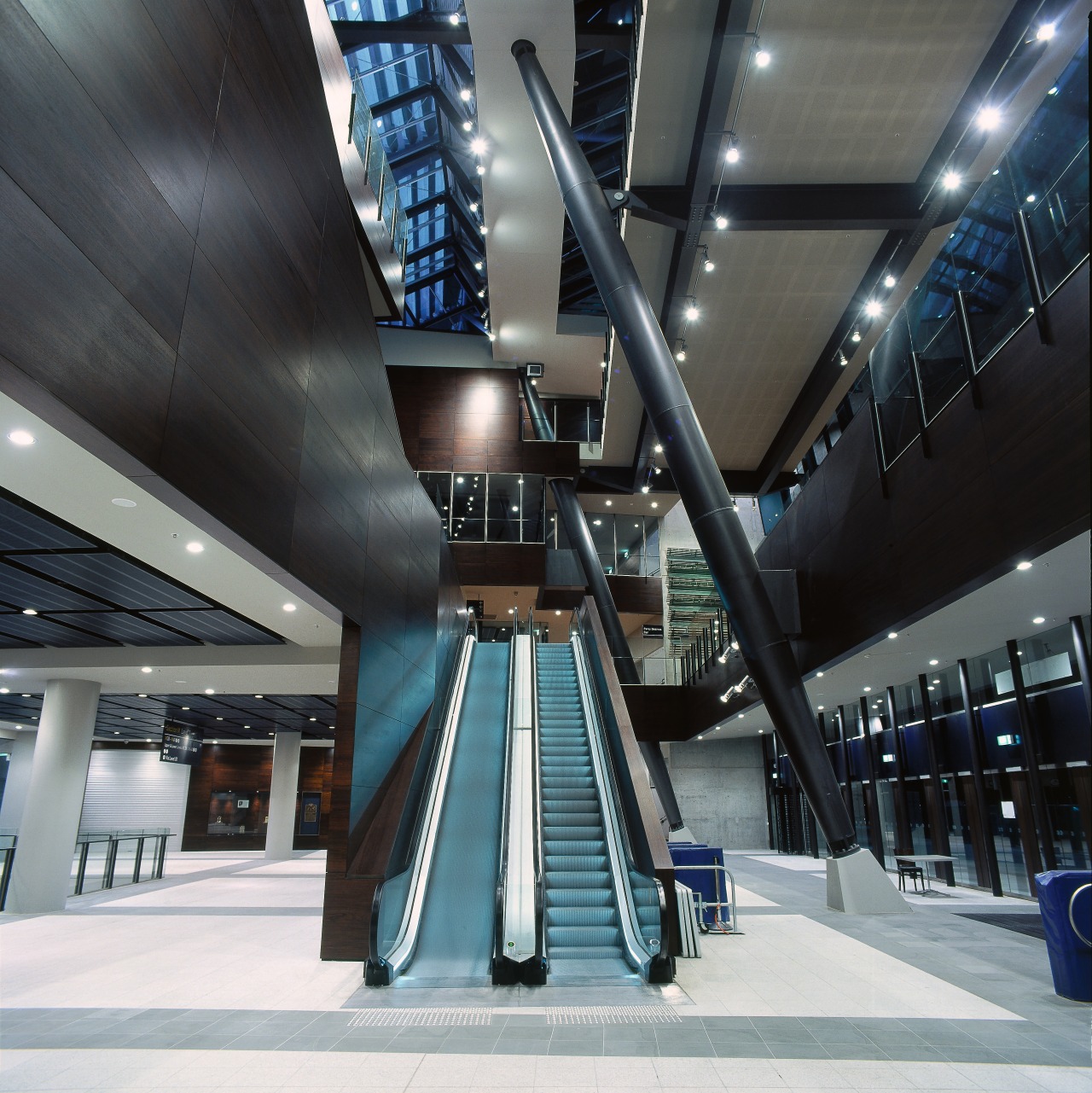On your marks
Few sporting arenas command the affection of fans like the MCG now redeveloped in time for the Commonwealth Games
When Melbourne hosted the Olympic Games in 1956, the city's choice of venue for the opening and closing ceremonies was its premier sporting arena the Melbourne Cricket Ground (MCG).
With its world renowned atmosphere, and history of grand finals and test matches, the MCG was an obvious choice for hosting duties at this year's Commonwealth Games. However, while the Southern Stand was redeveloped in 1992, the Northern Stand, with its narrow, uncomfortable seating plats needed modernising to an international standard.
The architects of the Great Southern Stand, Jackson Architecture and Tompkins Shaw and Evans, were joined by Cox Architects and Planners to prepare feasibility studies for the new stand. These firms were also joined by HOK Sport and Hassell Architects, thus forming MCG5.
The new design for the Northern Stand raised the capacity at the ground to 100,000, says Peter Cole, from Jackson Architecture.
"Important considerations included maximising the number of undercover seats and ensuring seating was easily accessible, comfortable and provided with excellent sightlines."
"Like other large cricket grounds, the MCG has evolved over the last 100 years as a series of individual grandstands. This ad hoc development had produced inefficiencies and poor views where stands of different levels abut, and had always prevented continuous crowd access at the upper levels around the ground," says Cole.
The new development links up with all levels of the Great Southern Stand and solves this problem once and for all.
In order to retain its traditional "open sky" atmosphere, the leading edge of the new stand's roof is glazed to allow natural light onto the ground while giving 80% coverage to the spectators.
Complementing, but differentiating from the Great Southern Stand's roof was most important.
"We bookended' the different roof profiles of the two stands with two large scoreboards," says Cole.
The new stand's roof is deeper than its predecessor. The top deck has an extra eight rows, allowing an increase in seating to 55,000.
"Gone is the disorientating, curving, tunnel-like space that previously required navigation through crowds to one's seat. Now you descend from generous concourses. The narrow slatted timber seats are also gone. Spectators today have higher expectations, they want comfortable seats, leg room, big video screens and easy access to facilities," he says.
The three major entrances were each given a unique individuality. The MCC Members features wood panelling and memorabilia, the Ponsford has a cricketing orientation, and the Northern a strong AFL football theme. Each entrance features a grand atrium, serviced by escalators, lifts and staircases.
MCG5 is a joint venture between Jackson Architecture, phone (03) 9662 3022, Cox Architects and Planners, phone (03) 9650 3288, HOK, phone (07) 3839 9155, Hassell Architects, phone (03) 9654 5744 and Tompkins Shaw & Evans, phone (03) 9663 7880.
Story by: Trendsideas
Home kitchen bathroom commercial design







